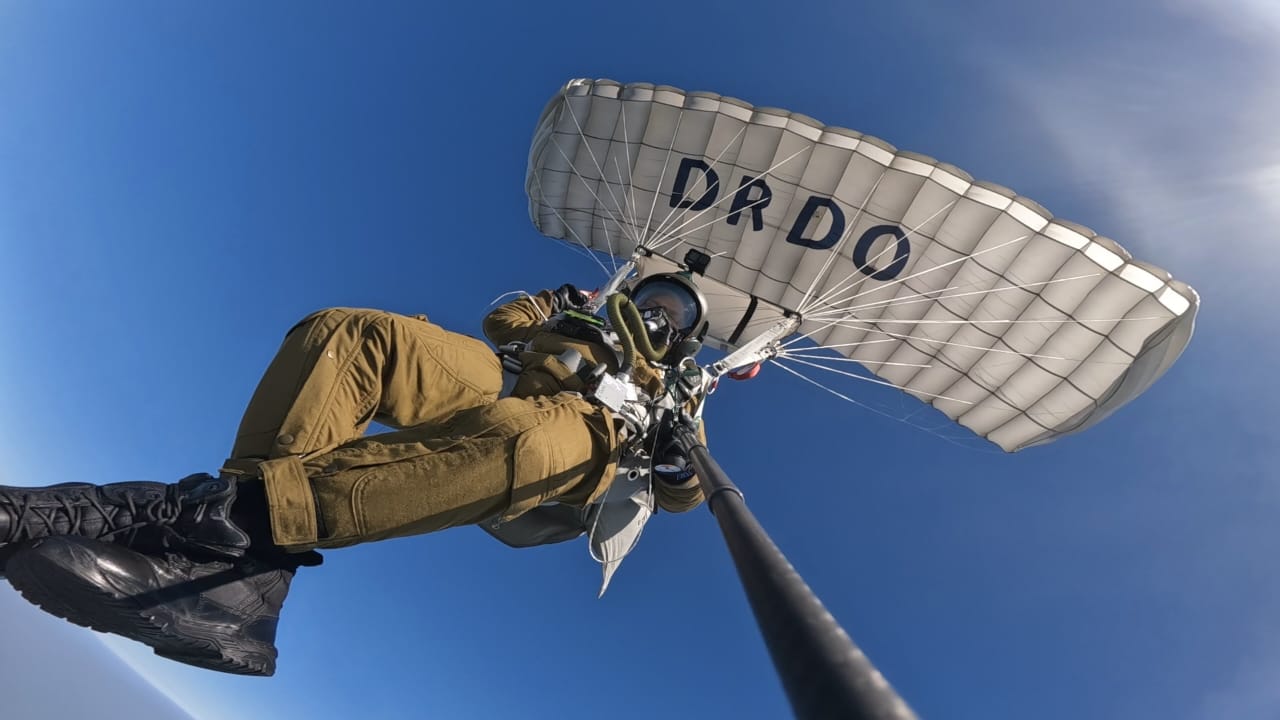Military Combat Parachute System

- 17 Oct 2025
In News:
- India has achieved a major milestone in defenceindigenisation with the successful testing of the Military Combat Parachute System (MCPS) by the Defence Research and Development Organisation (DRDO).
- The system demonstrated a combat freefall jump from 32,000 feet, making it a significant advancement in India’s aerial delivery capability.
About the Military Combat Parachute System
The MCPS is an indigenous high-altitude parachute system designed to support special operations and military freefall missions in extreme altitudes and hostile environments.
- Developed by:
- Aerial Delivery Research & Development Establishment (ADRDE), Agra
- Defence Bioengineering & Electromedical Laboratory (DEBEL), Bengaluru
Key Features
- Altitude Capability: Successfully tested from 32,000 feet, and the only parachute system in operational use with the capability to be deployed above 25,000 feet by Indian forces.
- Enhanced Tactical Performance:
- Lower rate of descent
- Superior steering and maneuvering abilities
- Allows accurate navigation and landing at designated drop zones
- Navigation Support: Compatible with NavIC (Indian satellite navigation system), ensuring secure and interference-free guidance.
- Mission Capability: Enables safe aircraft exit, controlled descent, and precise landing in complex terrains—critical for special forces operations.
Strategic Significance
- Self-Reliance in Defence:
- Major step towards Aatmanirbhar Bharat in aerial delivery systems
- Reduces dependence on foreign parachute systems and maintenance support
- Operational Advantage:
- Ensures reliability in high-risk environments
- Immune to external interference/denial of service attempts
- Enhances special operations capability against any adversary
- Logistics & Lifecycle Benefits:
- Faster maintenance turnaround compared to imported systems
- Ensures availability during conflicts or war-time contingencies
